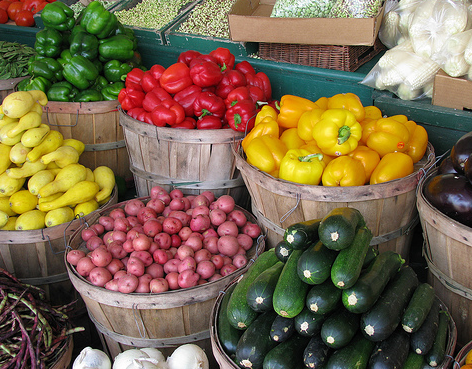Financing to Fight Food Deserts
by Krislyn Placide | June 20, 2012

Many of us are lucky enough to live in areas where we have plenty of access to fresh, healthy food, perhaps even within walking distance. On my way home, I can stop at a Safeway, Trader Joe’s, Whole Foods, or any of the Asian specialty groceries within a mile of my San Francisco apartment. In the Tenderloin neighborhood, just a few miles southeast, you’d be hard pressed to find any options like that.
According to the 2000 Census, 25.5 million Americans live in “food deserts,” low-income areas that are more than a mile from any grocery store. This poses a great challenge for those who can’t afford cars and may not be able to leave their immediate areas in search of fresh food. Food desert regions are often separated from adjacent neighborhoods not only by food equity, but by race and income level as well. For these groups, lack of access to nutritious food often equates to lack of access to health.
Pennsylvania’s Food Fresh Financing Initiative aims to help level the nutritional playing field in low-income areas throughout the state. Providing access to healthy, fresh food is the first step in improving the health and vitality of poorer communities.
The FFFI, created by the Commonwealth of Pennsylvania, is a grant and loan program that fosters the development of supermarkets in neighborhoods that need it. The Reinvestment Fund, The Food Trust, and the Greater Philadelphia Urban Affairs Coalition have partnered to manage the program. Rather than relying on large chain grocery stores to replenish the areas with fresh produce, the program’s funds usually go to independent, locally owned businesses.
Along with supporting local business and increasing access to fresh food, the FFFI supports two programs to make grocery stores more sustainable: the Green Supermarket/Grocery Initiative and the Healthy Corner Store Initiative. The Green Supermarket Initiative has developed some grocery stores into co-operatives and assisted others in energy efficiency. FFFI has also provided grants for refrigeration units to corner stores to enable them to offer fresh-cut fruit.
The FFFI website boasts that the initiative has helped finance 88 fresh-food retail projects, created or preserved more than 5,000 jobs, and improved food access for more than 500,000 people since its creation in 2004. The initiative serves as one of many models for investing in underserved communities, including mobile produce farms, agricultural education programs, and community gardens. Perhaps we can look forward to broader, nationwide access to fresh food for people in food deserts and low-income areas very soon.
The bottom line is that food access shouldn’t have anything to do with luck. It shouldn’t have anything to do with class, race, or geographic location. Everyone deserves access to health. With programs like FFFI, we’re well on our way toward a more equitable food system.
For additional info, check out New Dream's video, Solving Problems Through Community Wisdom.
Krislyn Placide is a student at Northwestern University and an intern with New Dream.

